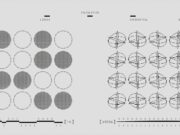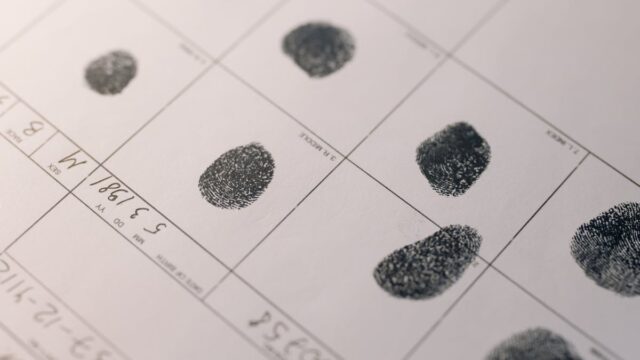When it comes to proving a point, whether in law, research, or any field, objective evidence plays a critical role. But what exactly does “objective evidence” mean? It’s essential to grasp the concept to understand how it applies in various contexts. In simple terms, objective evidence definition refers to proof that is independent of personal feelings, interpretations, or bias. It is factual, verifiable, and can be tested for accuracy.
Objective evidence is crucial in a wide range of situations, from legal proceedings to scientific studies. It provides unbiased evidence that can be relied upon to establish facts. This article will explore objective evidence definition, its importance, and how it differs from subjective evidence.
What is Objective Evidence?
Objective evidence is evidence that is based on observable, measurable facts, rather than emotions or opinions. In contrast to subjective evidence, which is influenced by personal perception, objective evidence is verifiable. It is often used in legal, scientific, and research settings to support claims, arguments, or conclusions.
For example, in a court case, objective evidence may include things like fingerprints, photographs, or medical records. These are items that are physical and can be tested to confirm their validity.
On the other hand, subjective evidence might be an eyewitness testimony where personal bias could influence the statement. Hence, objective evidence holds more weight, especially when a neutral third party is required to verify the facts.
Why Objective Evidence is Crucial in Legal and Research Fields
In both legal and research fields, objective evidence is indispensable. For instance, in a court case, having objective evidence can make or break a case. Imagine a scenario where an individual is accused of a crime. Without objective proof (such as DNA, video footage, or a solid alibi), it would be difficult to determine the truth.
Similarly, in research, objective data is essential for validating hypotheses and conclusions. Empirical evidence is used to support scientific claims. Without it, the study would be considered unscientific and unreliable.
Types of Objective Evidence
Objective evidence comes in many forms, depending on the context in which it is used. Here are some of the most common types:
| Type of Evidence | Description | Example |
| Factual Evidence | Based on facts, data, and measurable outcomes. | Statistical data, experiment results |
| Physical Evidence | Tangible objects that can be examined. | Weapons, documents, photographs |
| Scientific Evidence | Results from scientific experiments or tests. | Blood samples, DNA, chemical analysis |
| Testimonial Evidence | Statements from witnesses that are factual. | Recorded statements, expert testimonies |
Examples of Objective Evidence in Legal Cases
In legal cases, objective evidence is used to establish guilt or innocence. This could be in the form of physical evidence like weapons or scientific evidence such as DNA. For example, if a suspect’s DNA is found at a crime scene, that would be an example of objective evidence that can prove or disprove their involvement.
Another common example is objective testimony from expert witnesses. For instance, an expert in forensic analysis may testify that a fingerprint found on a piece of evidence matches a suspect’s print. This verifiable evidence can make all the difference in a legal proceeding.
Examples of Objective Evidence in Scientific Research
In scientific research, objective evidence is necessary to draw credible conclusions. Empirical evidence plays a vital role in this process. For example, when researchers conduct an experiment, they rely on objective data—such as test results, observations, and measurements—to support their findings.
A well-known example is the discovery of the structure of DNA. The findings were based on objective data gathered through scientific methods. Without this evidence, the conclusions would not have been deemed valid or reliable.
Objective vs. Subjective Evidence: Key Differences
Understanding the difference between objective vs. subjective evidence is essential. While both can serve as evidence, the weight they carry in a legal or research setting can differ significantly.
Objective evidence is based on facts and can be independently verified. In contrast, subjective evidence is influenced by personal experience or emotions and cannot always be verified.
For instance, a person’s testimony about witnessing a crime could be subjective, as they may have been influenced by personal bias or memory lapses. On the other hand, objective evidence like a surveillance video or a photograph would provide unbiased and verifiable proof.
How Objective Evidence Impacts Court Cases
In court, the power of objective evidence cannot be overstated. It can decisively determine the outcome of a case. Without factual evidence, it becomes difficult to build a compelling case. Legal proof like documents, contracts, and scientific evidence is often the cornerstone of a case.
Objective evidence helps to establish clear facts that are not open to interpretation, making it far more reliable than subjective statements. It leaves little room for argument and helps the judge or jury make an informed decision based on proven facts.
The Importance of Objective Evidence in Law
In the legal world, objective evidence serves as a foundation for determining guilt or innocence. It helps to protect individuals from wrongful accusations. When verifiable evidence is presented, it ensures that decisions are based on facts, not on feelings or perceptions.
Take the example of a car accident. If an individual claims they were not at fault, they may present objective evidence such as traffic camera footage or witness statements. These forms of unbiased evidence can prove that they were not responsible for the accident.
How Objective Data Strengthens Legal Arguments
In addition to factual evidence, objective data also strengthens legal arguments. For example, in personal injury cases, medical records showing the extent of injuries and the required treatment would serve as objective evidence supporting a claim for compensation.
Having concrete, measurable evidence enables attorneys to make strong, fact-based arguments that are hard to refute.
Objective Evidence in Research: A Closer Look
Research thrives on objective evidence. Whether in the fields of science, medicine, or social studies, objective data is necessary to prove hypotheses or theories. Empirical evidence gathered through controlled experiments or surveys forms the backbone of any credible study.
In research, objective data ensures that results are consistent and can be reproduced by other scientists. Without objective evidence, research becomes unreliable and subjective.
Verifiable Evidence: Building a Strong Foundation for Research
Verifiable evidence is fundamental for building a solid foundation in any research. This is why scientific studies require rigorous testing, replication, and peer review to ensure that the evidence is not influenced by bias or personal opinion.
Legal Proof: The Role of Objective Evidence in Court
In a legal setting, objective evidence plays a pivotal role in securing justice. Courts rely on objective testimony and scientific evidence to determine the facts of a case. This helps ensure that the decision made is based on objective facts rather than subjective opinions.
Objective Testimony vs. Subjective Testimony in Legal Matters
Objective testimony is more reliable than subjective testimony in legal matters. An expert witness, for instance, can provide testimony based on their professional experience and objective observations. This carries more weight than a layperson’s opinion or perception.
Frequently Asked Questions about Objective Evidence
1. What is the definition of objective evidence?
Objective evidence is proof that is factual, observable, and verifiable, without being influenced by personal opinions or emotions. It can be physical items, data, or any form of evidence that can be tested for accuracy.
2. What is the difference between objective evidence and subjective evidence?
The primary difference is that objective evidence is based on facts and is verifiable, whereas subjective evidence is based on personal feelings, perceptions, or experiences, and is open to interpretation.
3. How is objective evidence used in legal proceedings?
In legal proceedings, objective evidence includes physical items like documents, photographs, or DNA, as well as expert testimony based on factual data. It is used to prove or disprove claims in a case.
4. Why is objective evidence important in research?
In research, objective evidence ensures that conclusions are based on verifiable data and not influenced by bias or personal opinion. It is crucial for maintaining the integrity and credibility of scientific studies.























